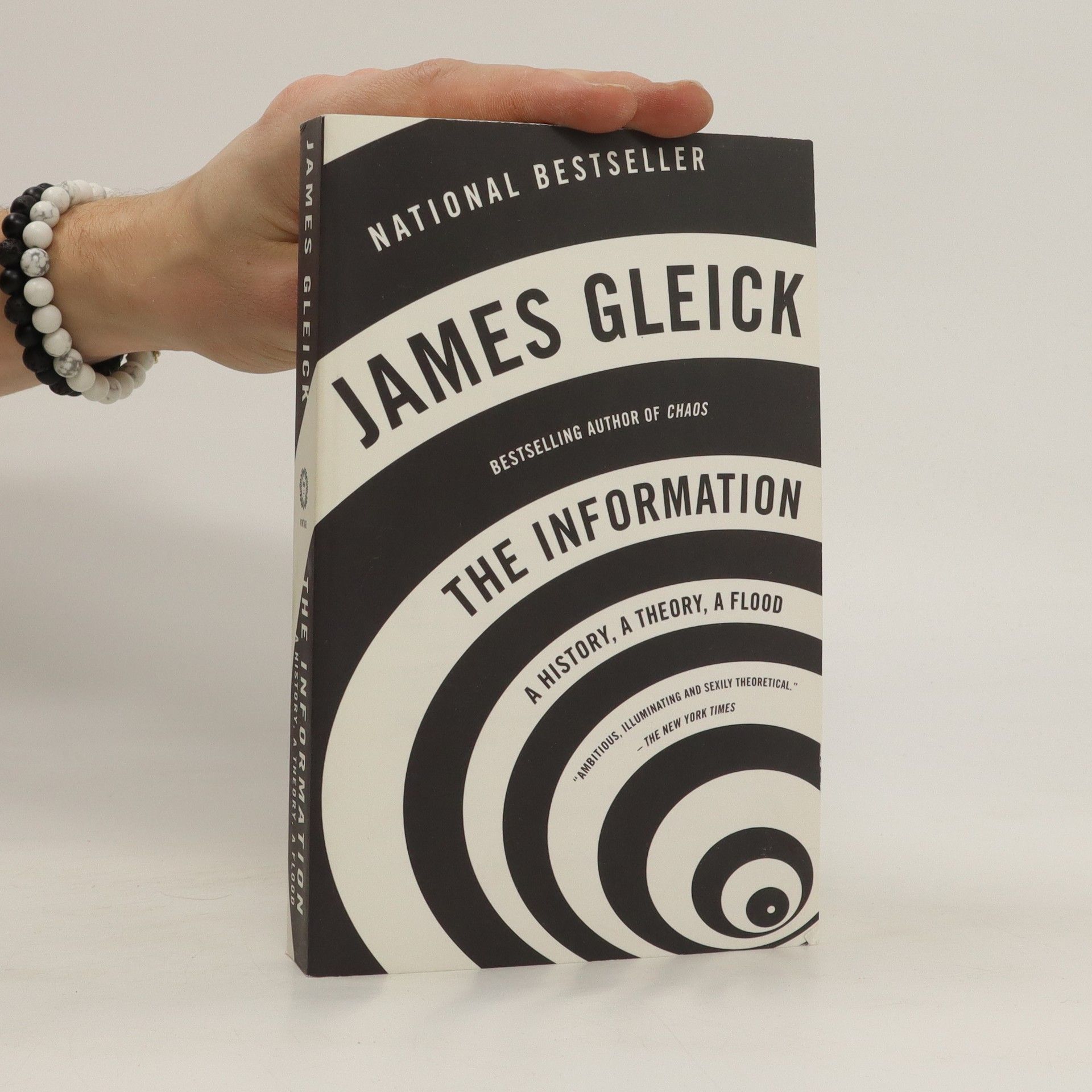James Gleick Bücher
James Gleick ist ein amerikanischer Autor, dessen Werke die kulturellen Auswirkungen von Wissenschaft und Technologie untersuchen. Sein Schreiben zeichnet sich durch scharfe Einblicke darin aus, wie wissenschaftliche Konzepte und technologischer Fortschritt unsere Gesellschaft prägen. Durch seine Essays und Bücher seziert er komplexe Ideen, wie die Chaostheorie oder die Entwicklung des Internets, und macht sie einem breiten Publikum zugänglich. Gleicks Stil ist bekannt für seine Klarheit, Tiefe und die Fähigkeit, scheinbar disparate Denkbereiche zu verbinden und dem Leser neue Perspektiven auf die Welt um ihn herum zu eröffnen.







Die Chaosphysik Nach Den Beiden Naturwissenschaftlichen Revolutionen Unseres Jahrhunderts - Relativitätstheorie Und Quantenmechanik - Die Neueste Disziplin Der Theoretischen Physik, Dringt Bis In Die Verborgensten Bereiche Der Wissenschaften Vor: In Die Ordnung Von Turbulenzen, Konfusionen Und Eher Zufälligen Gesetzmäßiqkeiten. (quelle: Www.booklooker.de).
Die umfassende und faszinierende Biografie eines begnadeten Menschen, dessen weitreichende Entdeckungen und zahlreiche Erfindungen unser heutiges Weltbild gestalteten. Sir Isaac Newton war Wissenschaftler mit Leib und Seele – er forschte und verzweifelte, entdeckte und stritt. Sein Enthusiasmus beflügelte alle Ideen und Pläne. Unabhängig davon, ob es sich um die Formulierung des Gravitationsgesetzes, die Konstruktion des ersten Spiegelteleskops, die Suche nach dem Stein der Weisen oder um Debatten zur Trinität Gottes handelte. James Gleick präsentiert dem Leser diese schillernde Persönlichkeit mit all ihren Facetten.
The information - a history, a theory, a flood
- 526 Seiten
- 19 Lesestunden
From the bestselling author of the acclaimed Chaos and Genius comes a thoughtful and provocative exploration of the big ideas of the modern era: Information, communication, and information theory. Acclaimed science writer James Gleick presents an eye-opening vision of how our relationship to information has transformed the very nature of human consciousness. A fascinating intellectual journey through the history of communication and information, from the language of Africa’s talking drums to the invention of written alphabets; from the electronic transmission of code to the origins of information theory, into the new information age and the current deluge of news, tweets, images, and blogs. Along the way, Gleick profiles key innovators, including Charles Babbage, Ada Lovelace, Samuel Morse, and Claude Shannon, and reveals how our understanding of information is transforming not only how we look at the world, but how we live. A New York Times Notable Book A Los Angeles Times and Cleveland Plain Dealer Best Book of the Year Winner of the PEN/E. O. Wilson Literary Science Writing Award
Edited and introduced by Bill Bryson, with contributions from Richard Dawkins, Margaret Atwood, Richard Holmes, Martin Rees, Richard Fortey, Steve Jones, James Gleick and Neal Stephenson amongst others, this beautiful, lavishly illustrated book tells the story of science and the Royal Society, from 1660 to the present.
What Just Happened
- 301 Seiten
- 11 Lesestunden
We are quick to acknowledge that our lives have been transformed by technology over the last ten years - that virtual reality has become as permanent a fixture in our lives as material reality; but the arrival of the electronic world over the last ten years was not a single invention, nor a single event; it could not be encompassed in a single moment. The last ten years can be characterized in three ways: the speed, the hysteria and the remarkable range of devices, aspects, and larger ramifications of what happened. Everyone knows about the accelerated pace of our lives. Everyone recognizes that the clamour has become unprecedented, but as much as we have all lived through the last ten years, it is hard to grasp the extent and expanse of what has happened.
Time Travel
- 352 Seiten
- 13 Lesestunden
From the acclaimed author of "The Information" and "Chaos, " a mind-bending exploration of time travel: its subversive origins, its evolution in literature and science, and its influence on our understanding of time itself. Gleick's story begins at the turn of the twentieth century with the young H. G. Wells writing and rewriting the fantastic tale that became his first book, an international sensation, "The Time Machine." A host of forces were converging to transmute the human understanding of time, some philosophical and some technological the electric telegraph, the steam railroad, the discovery of buried civilizations, and the perfection of clocks. Gleick tracks the evolution of time travel as an idea in the culture from Marcel Proust to "Doctor Who, " from Woody Allen to Jorge Luis Borges. He explores the inevitable looping paradoxes and examines the porous boundary between pulp fiction and modern physics. Finally, he delves into a temporal shift that is unsettling our own moment: the instantaneous wired world, with its all-consuming present and vanishing future."
Quanta Magazine's stories of mathematical explorations show that inspiration strikes willy-nilly, revealing surprising solutions and exciting discoveries.
Una goccia che si spande nell'acqua, le fluttuazioni delle popolazioni animali, i ritmi della fibrillazione cardiaca, la Grande Macchia Rossa di Giove, le oscillazioni dei prezzi, gli errori del computer. Sono fenomeni apparentemente assai diversi, con un solo tratto in comune: per la scienza tradizionale appartengono al mondo dell'imprevedibile, al "caos". Ma da due decenni gli scienziati stanno scoprendo che dietro il "caos" c'è un ordine nascosto, cha da origine a fenomeni complessi a partire da regole semplici. Gleick racconta la nascita e l'evoluzione della "scienza del caos" seguendone le tappe attraverso i ritratti dei suoi protagonisti. Ed in questo percorso appassionante riesce a suggerire un diverso modo di osservare il mondo.ou will never look at the world in quite the same way again.



